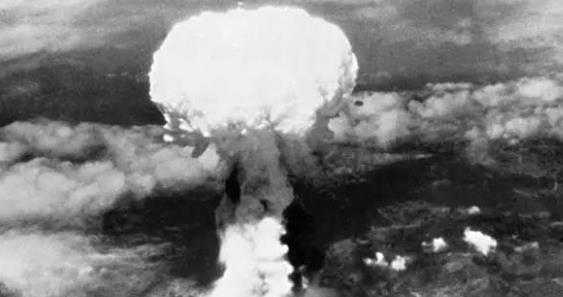The biggest beneficiaries of the First World War were Britain and the United States, and the greatest beneficiaries of the Second World War were the United States and the Soviet Union. After the two world wars, the United States took off rapidly in economic and social science and technology and quickly became a superpower. Among the stepping stones of the United States, Japan is one of the most miserable. Japan was hit by the Allies because of its almost crazy will to invade, and the United States dropped two atomic bombs on Hiroshima and Nagasaki in Japan.

At the end of World War II, fascist Germany and Japan finally could not hold out. Germany was the first to announce unconditional surrender, but Japan was slow to announce surrender. There is even a voice in Japan that it will never surrender, preferring to reopen the battlefield in Japan and make a final resistance.
The reason why the Japanese were reluctant to surrender was because the people had long been educated in militarism. Japan's militarist ideology was formed after the Meiji Restoration, and it was the "Bushido spirit" that applied to the military. Later, Japanese militarism also became the guiding ideology of Japan's aggression against the whole world, and there were two main characteristics: one was to publicize the cultural superiority of the Japanese nation, and the other was to exaggerate and exaggerate the crises and threats facing the Japanese nation. In this way, he controlled the Japanese people and the Japanese soldiers.
However, in the late second period of World War II, many Japanese soldiers were restrained by this ideology and disobeyed the orders of the prime minister. On the eve of Japan's surrender, there were many suicides in Japan, these people shouted "decisive battle on the mainland", and the Allies were afraid of causing war again, forcing the Japanese emperor to quickly sign an agreement on "unconditional surrender".
In order to issue the issue of surrender, there were many meetings within Japan to discuss, and the Japanese upper echelons believed that the Allied forces had suppressed Japan in terms of strength and firepower, and coupled with the emergence of the atomic bomb, Japan had no possibility of victory, so it agreed to surrender. However, the Japanese officers' upper echelons did not approve of this decision, because even if they surrendered, these officers would be liquidated after the war and would not get a good ending.
Eventually, Prime Minister Suzuki convened a cabinet meeting, at which he ordered the clerk to read out the Potsdam Proclamation and explain the reasons for the surrender. However, Vice Admiral Toyoda, commander-in-chief of the Japanese Naval Command, said that it was okay to surrender, but three conditions were met: 1. Japan dealt with war criminals on its own; 2. Disarmed on its own; and Third, the Allies could not occupy the Japanese mainland.
Naturally, the Allies would not agree to such a request. There was no way but to ask the Emperor for a decision, and he said at the end of the meeting, "For Japan, accepting the Potsdam Proclamation is not decent, but it has to appear under the current circumstances." Coupled with the appearance of the atomic bomb and the declaration of war on us by the Soviet Union, the situation is urgent, and the other side is even tougher. At this time, only one thing can be proposed, that is, to maintain the emperor system, as long as the emperor is preserved, the Yamato nation will have a revival day."
Eventually, Japan announced its surrender on the condition of preserving the imperial system. If the Allies had not agreed to this condition, the Japanese might have resisted and once again caused disputes around the world.